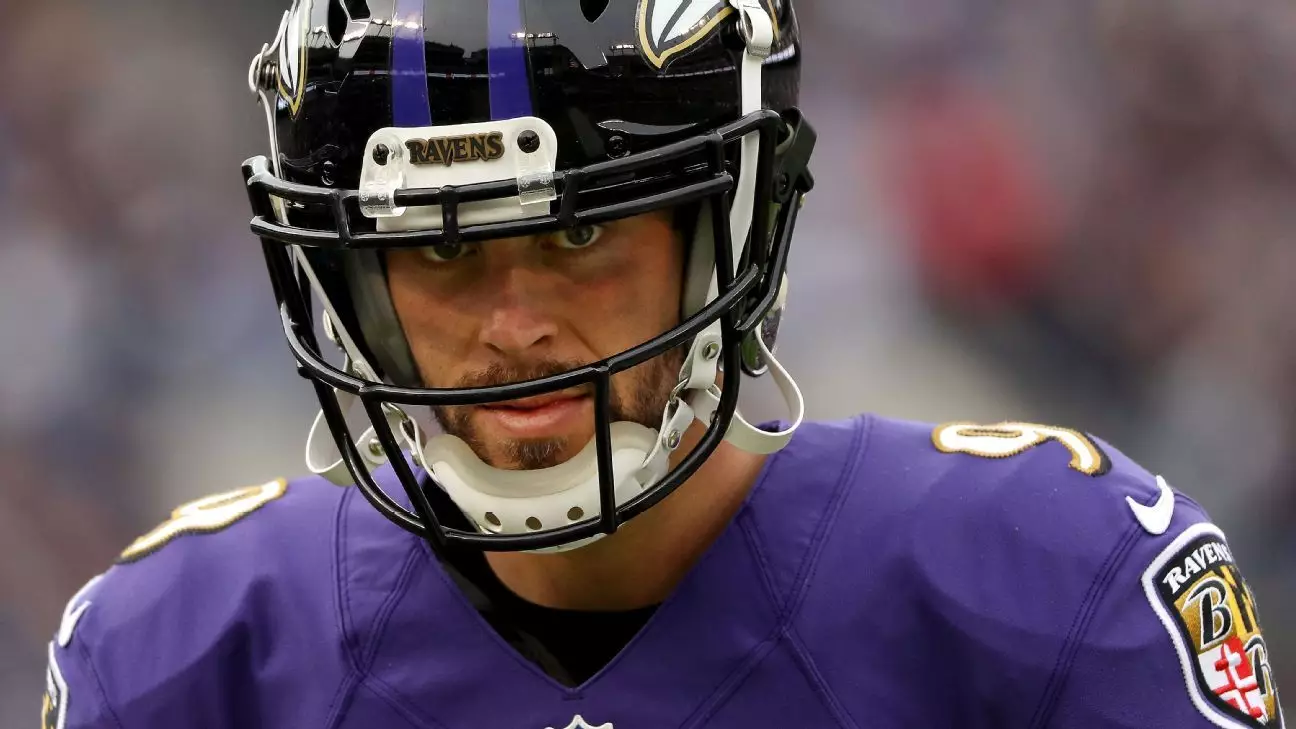In the world of professional sports, the reputations of players can be as fragile as their athletic careers are illustrious. Recently, Baltimore Ravens kicker Justin Tucker has found himself at the center of a significant controversy, with new allegations surfacing that suggest a consistent pattern of inappropriate behavior. The latest reports indicate that seven more women have come forward with claims against Tucker, bringing the total number of accusers to sixteen, originating from eight different spas. This troubling development raises not only questions about Tucker’s conduct but also sheds light on broader issues regarding accountability and the betting nature of power dynamics in sports.
The incidents in question reportedly took place between 2012 and 2016, a period that coincides with Tucker’s initial seasons in the NFL. The newly disclosed accusations involve claims of egregious behavior during massage therapy sessions. Specific allegations include a woman asserting that Tucker left what she perceived to be ejaculate on the massage table, another accusing him of maintaining unsettling eye contact while in a state of undress. Such allegations carry grave implications, implying a disregard not only for professional boundaries but also for the wellbeing of those who were supposed to provide him a service. The consistent emergence of claims suggests a troubling pattern that cannot be ignored.
In response to these allegations, NFL Commissioner Roger Goodell addressed the gravity of the situation during a Super Bowl press conference, emphasizing that the league takes such matters seriously. This statement reflects an internal recognition of the potential damage such allegations pose, not just to an individual’s career but also to the reputation of the NFL itself. Should Tucker be found in violation of the league’s personal conduct policy, there could be disciplinary repercussions. With the league already grappling with issues related to player behavior, the inclusion of such serious allegations further complicates its public perception and mandates an urgent investigation.
Tucker’s legal representatives have vehemently denied the allegations, framing them as desperate attempts to exploit his celebrity status. They assert that the accusations are based on ambiguous interactions blown out of proportion. Tucker himself took to social media, branding the allegations as “unequivocally false” and indicative of tabloid sensationalism. In a bid to support his defense, his legal team provided a sworn declaration from the owner of the Baltimore Spa & Salon, which stated that no complaints against Tucker had ever been received. Despite this, therapists associated with the spa reported a fear of retaliatory consequences, revealing a troubling atmosphere where professional ethics may be compromised.
This scenario reflects a troubling culture within the service industry, wherein individuals often hesitate to come forward with complaints, fearing potential professional repercussions. The reluctance of therapists to report Tucker’s alleged misconduct underscores a significant issue: how power dynamics play a role in silencing victims of inappropriate behavior. Furthermore, the psychological toll that such experiences exact on those who have to endure them cannot be overstated. It is paramount for institutions to foster environments where individuals feel safe and supported in voicing their concerns.
As the situation continues to unfold, the broader implications of these allegations on Tucker’s career and the Ravens organization must be considered. Tucker holds the unique title of being the most accurate kicker in NFL history, as well as the longest-tenured player on the Ravens’ roster. However, his legacy could be irrevocably tarnished if more substantiated evidence emerges to support the allegations against him. The coming days and weeks will be critical in determining not just Tucker’s fate but also the NFL’s response to allegations of this nature in the future.
The allegations against Justin Tucker serve as a stark reminder of the challenges faced by individuals who navigate the intersection of fame and personal responsibility. The situation demands a careful and comprehensive investigation, one that must prioritize the truth and the wellbeing of those involved while reassessing the supports available to both accusers and accused in these complex scenarios.

